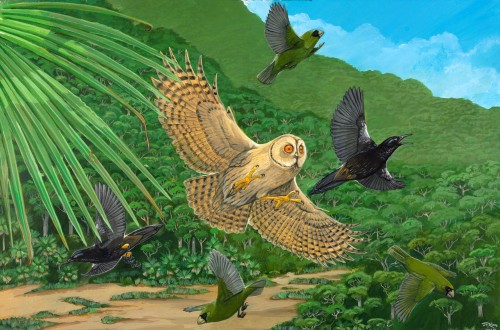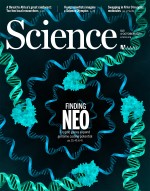IPREM researcher signs biodiversity study published in “Science”Human activity has greater consequences than expected
Over the last 130,000 years, human activities have led, directly or indirectly, to the extinction of hundreds of bird species. This loss of biodiversity has led to a significant reduction in the diversity of ecological roles played by species, and has resulted in the loss of around 3 billion years of evolutionary history and potential.
This study thus reveals the unsuspected scale of the current biodiversity crisis and highlights the need to take account of the ecological functions of extinct or threatened species when assessing the consequences of global change on the loss of biodiversity and the altered functioning of ecosystems.
Following the example of the dodo, which became extinct in Mauritius towards the end of the 17th century, or the Kaua'i moho, a Hawaiian songbird that has not been seen since 1987 and was declared extinct in 2023, at least 600 bird species have become extinct as a result of human activities since the Late Pleistocene (-130,000 years ago), when modern humans started to spread throughout the world.
A complex network of biological interactions
A group of researchers including ornithologists, ecologists, evolutionary biologists and palaeontologists, led by Tom Matthews (University of Birmingham), and including researchers from the CNRS and the Universities of Pau and Pays de l'Adour (IPREM laboratory) and Toulouse (Centre de Recherche sur la Biodiversité et l'Environnement), has produced the most comprehensive review to date of bird extinctions over the last 130,000 years.
Using a set of new data on the morphological and ecological traits and evolution of all current and extinct bird species, researchers have been able to show that the consequences of extinctions caused by anthropogenic global change cannot be quantified simply by the number of species lost, as other dimensions of biodiversity are also affected, in particular those linked to the ecological role of species (estimated by functional diversity) and the evolutionary heritage (estimated by phylogenetic diversity).
As Tom Matthews, lead author of the publication, explains, “The sheer number of bird species that have become extinct is of course a big part of the extinction crisis, but what we also need to focus on is that every species has a job or function within the environment and therefore plays a really important role in its ecosystem. Some birds control pests by eating insects, scavenger birds recycle dead matter, others eat fruit and disperse the seeds enabling more plants and trees to grow, and some, like hummingbirds, are very important pollinators. When those species die out, the important role that they play (the functional diversity) dies with them.”
“In addition to functional diversity each species also carries a certain amount of evolutionary history, therefore when that species becomes extinct, it’s basically like chopping off a branch of the tree of life and all of that associated phylogenetic diversity is also lost.”
Considerable repercussions on the dynamics and functioning of many ecosystems
The research found that the scale of anthropologenic bird extinctions to date has resulted in a loss of approximately 3 billion years of unique evolutionary history, and 7% of global avian functional diversity – a significantly larger amount than expected based on the number of extinctions.
Given the wide range of important ecological roles performed by birds, the loss of avian functional diversity in particular will likely have had far-reaching implications. These post-extinction aftershocks include reduced flower pollination, reduced seed dispersal, the breakdown of top-down control of insect populations - including many pests and disease vectors - as well as increased disease outbreaks due to reduced consumption of carrion.
In addition, the downsizing of the global avifauna documented in the research will likely affect the ability of many plant species to track present and future climate change.
The results of this research underline the need to take account of the impact of man-made extinctions on all aspects of biodiversity, and not just in terms of the number of species that have disappeared. On a global scale, the authors estimate that a thousand bird species are likely to become extinct over the next two centuries. In addition to the tragic loss of species and the evolutionary heritage and potential they represent, these extinctions will lead to changes in the dynamics and functioning of ecosystems, particularly those in which birds play many ecological roles.
The researchers conclude that conservation strategies on a global scale, particularly those based on ecosystem restoration or “rewilding”, will have to take account of the loss of ecological functions associated with future extinctions if they are to be effective in the long term.
* The global loss of avian functional and phylogenetic diversity from anthropogenic extinctions, Science, October 4, 2024.
Authors: Thomas J. Matthews, Kostas A. Triantis, Joseph P. Wayman, Thomas E. Martin, Julian P. Hume, Pedro Cardoso, Søren Faurby, Chase D. Mendenhall, Paul Dufour, François Rigal, Rob Cooke, Robert J. Whittaker, Alex L. Pigot, Christophe Thébaud, Maria Wagner Jørgensen, Eva Benavides, Filipa C. Soares, Werner Ulrich, Yasuhiro Kubota, Jon P. Sadler, Joseph A. Tobias, Ferran Sayol.


